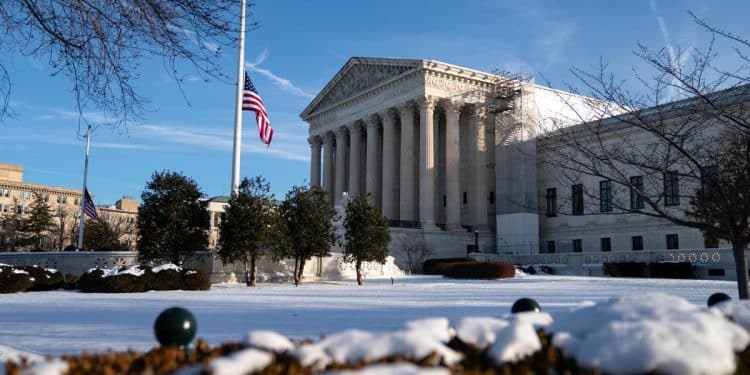Washington – The Supreme Court said on Monday that it would not be considering whether to dismiss lawsuits filed by Honolulu, which sought billions of dollars in damages from oil and gas firms for climate change damage.
The lawsuit filed in Hawaii state courts is similar to other legal actions brought by local and state governments against the largest energy companies in America. The suits allege that the oil and gasoline industry has engaged in deceptive tactics and misled the public regarding the dangers and environmental impacts of fossil fuel products.
The suit was filed in Hawaii state court in March 2020, and Honolulu a href=”https://www.honolulu.gov/rep/site/ccsr/City_and_County_of_Honolulu_vs._Sunoco_LP_et_al.pdf” rel=”nofollow noopener” target=”_blank>raised/a> several claims under state law The lawsuit was filed in Hawaii state courts in March 2020. Honolulu made several claims under the state laws, including creating public nuisances and failing to warn the public about the risks of their fossil fuel products.
The city claimed that the oil and gas industries were contributing to climate change by causing flooding, erosion, and more intense and frequent extreme weather events. They said that these changes have caused property damage as well as a decrease in tax revenue due to less tourism.
The energy companies tried unsuccessfully to move the case to federal court. They argued that federal law and the Clean Air Act overruled the claims made by Honolulu based on state law. The state trial court rejected their attempts to dismiss the case.
The oil and gasoline industry has claimed that greenhouse gas emissions are the result of “billions of daily decisions, made by governments, businesses and individuals, for more than a hundred years, about which fuels to use and how to use these fuels.” Honolulu was seeking damages from the companies for “the cumulative effect of global emissions that lead to climate change.”
In the end, Hawaii Supreme Court permitted the lawsuit to continue. The Hawaii Supreme Court determined that the Clean Air Act replaced federal common law in governing lawsuits seeking damages for pollution caused by interstate air. The court also rejected oil companies’ arguments that Honolulu sought to regulate emissions by filing its lawsuit. It found that Honolulu instead wanted to challenge fossil fuel product promotion and sales “without warning, and aided by an sophisticated disinformation campaign.”
Hawaii Supreme Court: “Plaintiffs state tort law claims don’t seek to regulate emission, so there’s no ‘actual contradiction’ between Hawaii tort laws and the [Clean Air Act]”, the court ruled. These claims could regulate marketing practices while the CAA regulates pollutants.
Oil companies asked the U.S. Supreme Court for a review of the Hawaii High Court’s ruling and to stop Honolulu from pursuing its lawsuit. Lawyers for the energy sector argued that regulation of interstate pollutants is a federal issue governed by federal laws.
In a document, lawyers for the companies stated that “rarely does a case with such extraordinary importance for one of the most vital industries in the United States come before this Court.” Energy companies that sell and market fossil fuels face numerous lawsuits filed in state courts throughout the country seeking billions in damages alleged to be caused by global warming.
The oil and gas industry argued that the case raised a “recurring question of extraordinary significance to the energy sector,” which they asked the Supreme Court to resolve.
They said: “In these cases state and local governments attempt to assert control over nation’s energy policy by holding energy firms liable for global conduct that is in stark conflict with federal policies and priorities.” This is a violation of the precedents set by this court and the basic principles of federalism. The court should stop it.”
In a filing, lawyers for Honolulu stated that the case seeks hold the oil and natural gas industry responsible under Hawaii law for intentionally concealing and misleading the climate change impacts of their fossil fuel products.
The city argued that its lawsuit does not interfere in the authority of the Environmental Protection Agency to regulate greenhouse gas emissions. Honolulu’s legal team accused oil and gas companies in the case of pushing a theory that “improperly attempts” to disguise the former federal commonlaw of interstate pollutants in constitutional garb.
In June , the Supreme Court asked the Biden Administration for its opinion on the cases. The Biden administration, in a submission to the Supreme Court, urged the justices not to take up the cases, citing that it was too early for them to step into the dispute.











